Iraqi forces recapture Mosul's train station, reach Great Mosque
Iraqi forces have managed to retake the train station in the flashpoint northern city of Mosul and surround the Great Mosque as they continue to purge Daesh terrorists from the city’s western section.
Lieutenant General Raed Shakir Jawdat, the commander of the federal police, said on Tuesday that his forces had wrested control of the train station and a nearby bus station, both situated southwest of Mosul's Old City.
Salam Jabr Saloom, the director general of Iraqi Republic Railways Company (IRR), highlighted the importance of the now recaptured train station, saying, it is the "main corridor from the north to the south and carries goods from Turkey and Syria to [the cities of] Baghdad and Basrah.”
The station was "exposed to many terrorist attacks before the entry of Daesh," due to its significance, Saloom added.
Moreover, IRR spokesman Abdulsattar Mohsen underscored the importance of the facility and said that it was a "launch point for trains carrying goods to Syria and Turkey and back. But it stopped after the Daesh attack on Mosul.”

Separate reports said on Tuesday that Iraqi forces had reached Mosul’s Great Mosque of al-Nuri, in which Daesh leader, Ibrahim al-Samarrai, also known as Abu Bakr al-Baghdadi, appeared in June 2014 and proclaimed a so-called caliphate straddling Syria and Iraq.
Meanwhile, a commander with the military operations in the Nineveh Province, announced that the Iraqi army troops had liberated the village of al-Jamaliah.
The recapture puts the eastern bank of the Tigris River fully under the control of the Iraqi forces, the commander noted.
Additionally, the most important Daesh military figure, called Mahmud Mohammad, was killed during the operation to Bab al-Toub area in Mosul’s Old City. A few hours later, an Iraqi federal police officer said the country's forces had also killed Daesh military commander of Mosul’s Old City, Abu Abdul Rahman al-Ansary, who was killed in the Bab al-Toub battle as well.
Over 80k Iraqis displaced in Mosul’s west: IOM
Also on Tuesday, the International Organization for Migration (IOM) said on its official Twitter account that 80,568 people had fled western Mosul since the beginning of the liberation operation last month.

Mosul fell to Daesh in 2014, when the terror outfit began its campaign of death and destruction in the Arab country.
Iraqi army soldiers and allied fighters launched the offensive to retake Mosul, Daesh’s last major city stronghold in the country, last October.
Iraqi forces took control of eastern Mosul in January and launched the battle in the west on February 19.
More than 700 Daesh elements slain in west Mosul battle: Cmdr.
Separately on Tuesday, Staff Major General Maan al-Saadi, of Iraq’s Counter-Terrorism Service (CTS), told Kurdish media network Rudaw that over 700 Daesh terrorists had been killed during the west Mosul fight.
Saadi further stressed that most of the slain Takfiri militants were foreign nationals.
He also pointed out that the Iraqi army was en route to recapture districts around the al-Omal neighborhood in downtown Mosul while the militants were retreating from adjacent districts.
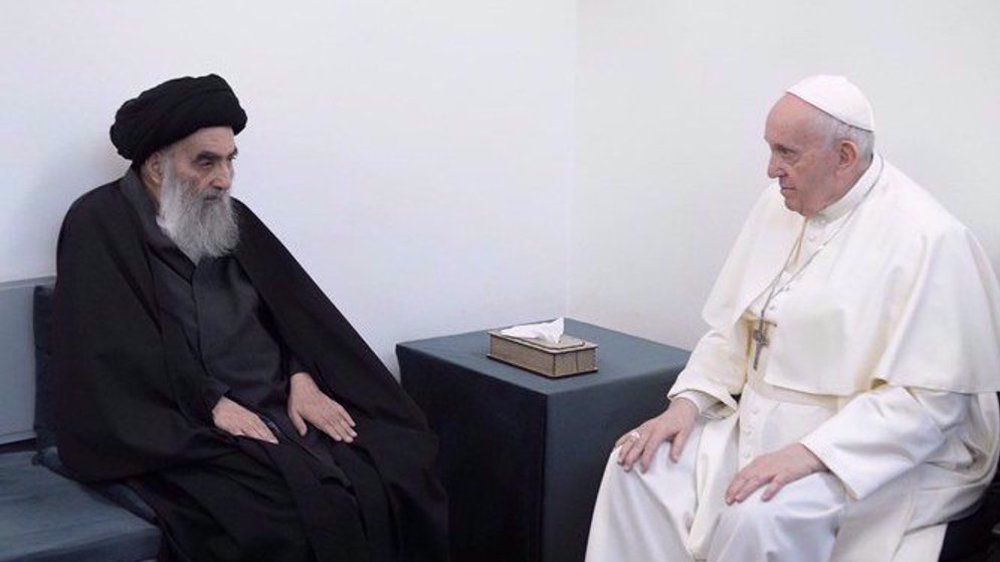
Ayatollah Sistani offers condolences on passing of Pope, hails his role in promoting peace
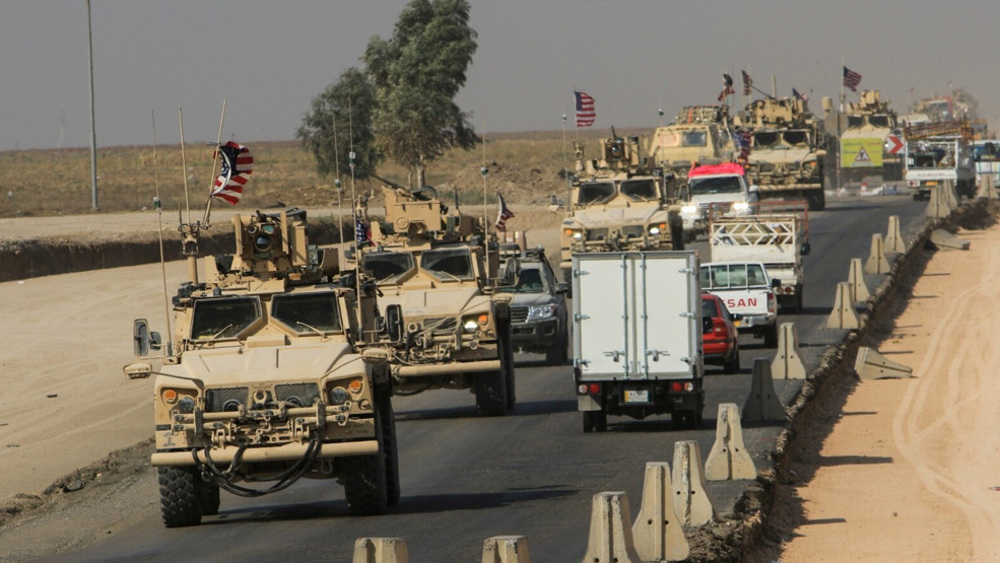
US arms convoys enter Iraqi Ain al-Asad base from Syria: Report
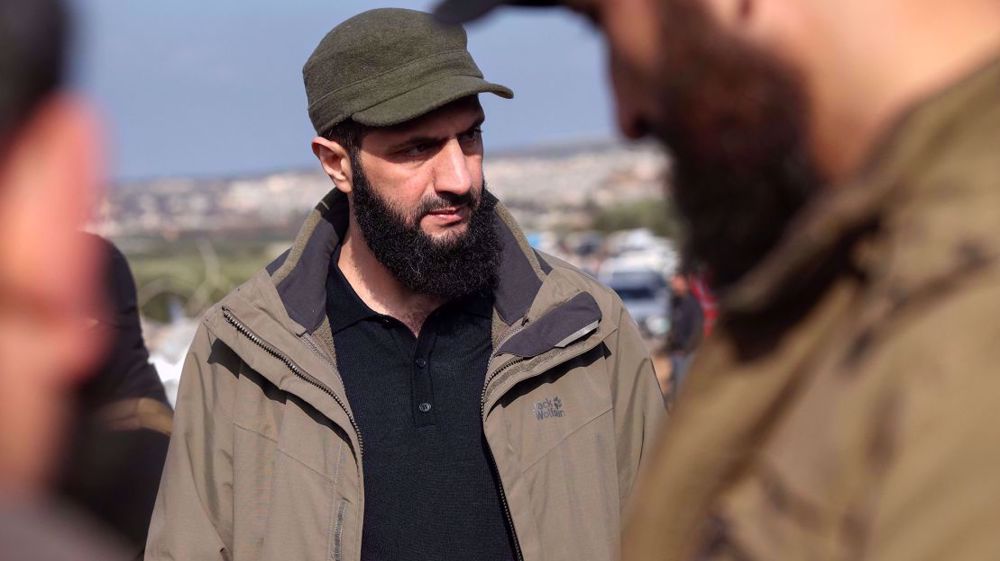
Syria’s self-proclaimed president can be arrested if he visits Baghdad: Iraqi figure
Iran petroleum minister in Russia to boost economic cooperation
Over 100 rabbis, cantors slam Trump for pro-Palestine campus crackdown
Nearly 30 Palestinians killed in fresh Israeli strikes on Gaza
VIDEO | Press TV's news headlines
FBI, local police raid homes of pro-Palestine activists in Michigan
Trump ratings low amid US economic turmoil
VIDEO | Trump tariffs: A wrecking ball!
Israel deprives Gazans of basic needs for ‘survival’: UN






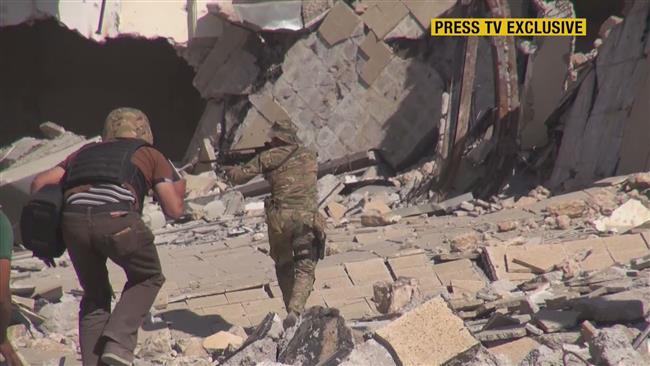
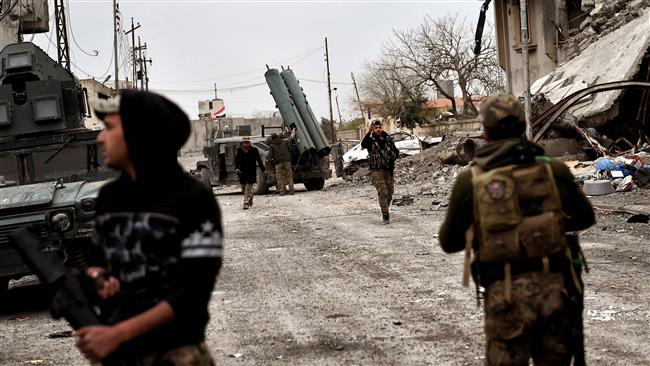



 This makes it easy to access the Press TV website
This makes it easy to access the Press TV website